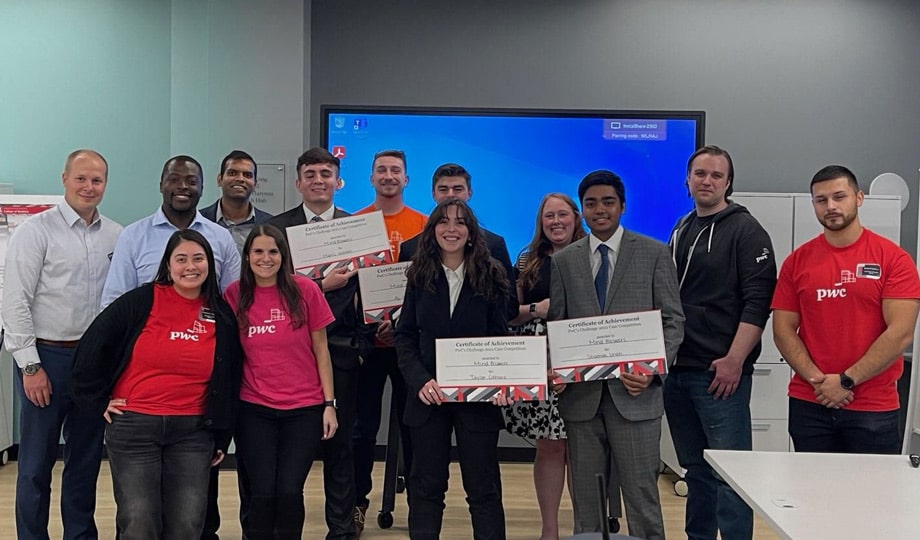Students Participate in PwC Case Competition at Scranton
In a testament to the collaborative spirit and intellectual prowess of students, the University of Scranton recently hosted the PwC Case Competition, providing a platform for participants to engage in real-world problem-solving. This event not only highlighted the students' analytical and strategic thinking skills but also underscored the value of experiential learning partnerships between academia and industry. This article explores the dynamics of the PwC Case Competition at Scranton, shedding light on the challenges presented, the innovative solutions crafted, and the broader impact on the participating students.
The PwC Case Competition brought together aspiring business leaders from the University of Scranton, challenging them to tackle a complex business case reflective of real-world scenarios. The competition, facilitated by PwC, a global leader in professional services, provided students with a unique opportunity to apply classroom knowledge to practical situations, fostering a bridge between academic theory and the demands of the business world.
The competition presented participants with a multifaceted business case that demanded a comprehensive understanding of financial, strategic, and operational aspects. This approach aimed to simulate the intricacies of decision-making in a corporate setting, requiring students to analyze data, identify key issues, and formulate strategic recommendations. The challenges posed by the case were designed to reflect the complexity and ambiguity often encountered in professional business environments.
Participants were tasked with making strategic decisions that encompassed various facets of business operations. From market analysis to financial forecasting, the competition prompted students to think critically about the implications of their choices on the overall success and sustainability of the hypothetical business.
Emphasizing the importance of teamwork, the competition required students to collaborate effectively. The diverse skill sets of team members were brought to the forefront as they worked collectively to dissect the case, share insights, and construct well-reasoned solutions. This collaborative element mirrored the collaborative nature of projects in the corporate landscape.
In addition to the analytical aspect, participants were challenged to manage their time efficiently and distill their findings into a compelling presentation. Effective communication of their strategic recommendations was a key component, testing their ability to articulate complex ideas in a clear and concise manner—a skill highly valued in professional settings.
The PwC Case Competition showcased the creativity and innovative thinking of Scranton students as they navigated the challenges posed by the business case. The solutions presented demonstrated a deep understanding of the issues at hand, coupled with inventive approaches to problem-solving. The diverse perspectives brought forth by each team contributed to a rich tapestry of ideas and strategies.
Teams delved into data analysis, leveraging their analytical skills to draw meaningful insights. The incorporation of data-driven decision-making underscored the importance of evidence-based strategies in addressing complex business challenges.
The competition highlighted the participants' ability to formulate strategic visions for the hypothetical business, considering both short-term gains and long-term sustainability. This strategic foresight reflected a keen understanding of the interconnected nature of business decisions.









